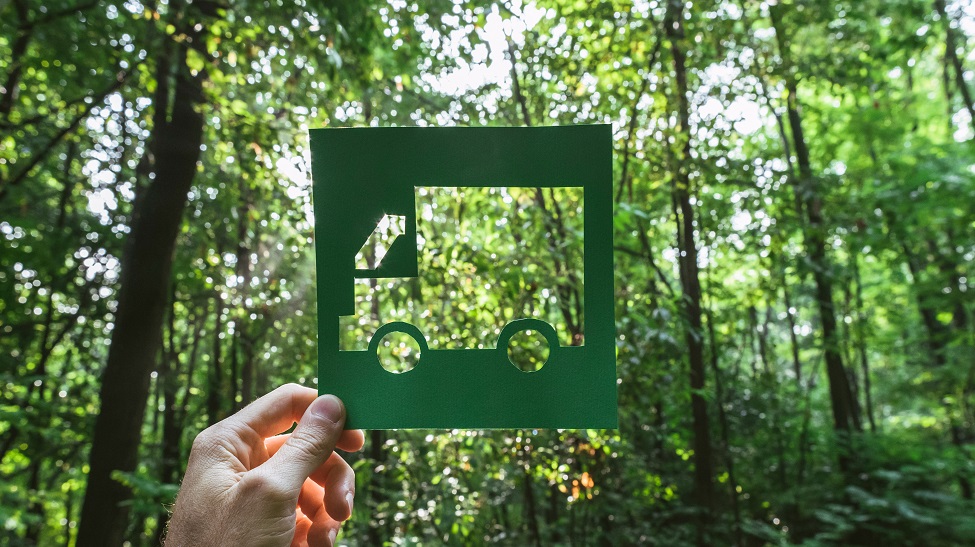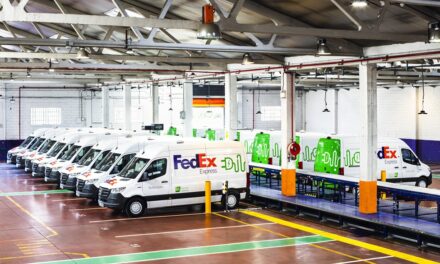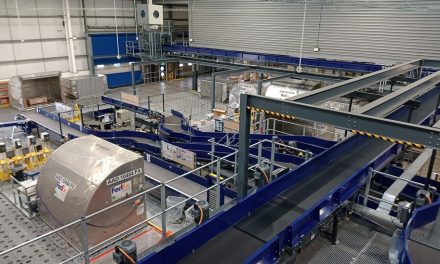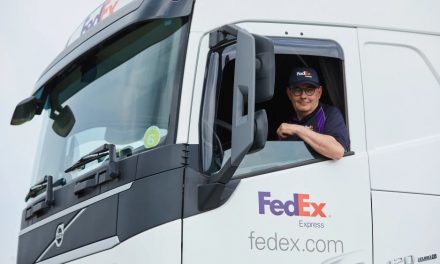
What we do next is critical

David Canavan, Chief Operating Officer, FedEx Express Europe explains why sustainability is the defining issue for our industry in the decade ahead.
“As European economies rebuild after the COVID-19 pandemic, governments, businesses and communities are reflecting on how the pandemic has changed our lives and what that means for the future.
At the top of that list are growing calls for a sustainable recovery across the world. The EU’s recent €672 billion recovery fund earmarked 37% of expenditure exclusively for projects that support climate objectives. And of course the new Biden administration in the US has made climate action central to its policy agenda.
The transportation industry is a major contributor to greenhouse gas emissions globally. In Europe, almost half of all carbon emissions generated by road transport can be attributed to freight transportation. The EU Commission’s Sustainable and Smart Mobility Strategy identifies specific targets for the sector. An emissions reduction as large as 90% by 2050 is considered necessary for the transport sector if the EU is to become the first climate-neutral continent by 2050.
The global logistics industry is already making great strides in the area of sustainability. And we do so against a backdrop of accelerating demand for goods (e-commerce has boomed during the pandemic), and a high demand for the capacity and services we can offer – not least to ship the PPE, test kits and vaccines needed to fight the virus. How we balance this demand for goods and the critical role we play facilitating trade and global supply chains with our environmental responsibilities is the defining challenge for our industry in 2021 and the decade ahead.
FedEx’s own efforts in environmental sustainability have been long-standing and delivered significant reductions in carbon emissions across our facilities, road and air networks over the years.
Building on strong foundations, we continue to apply our Reduce, Replace, Revolutionise framework across everything we do. This framework drives company-wide goals to reduce emissions, increase efficiency and invest in new technology, in ways that allow us to grow as a business but to so in an environmentally responsible way.
And we are proud of what we have achieved so far, minimising the impact of what we do with proven programs that improve fuel efficiency and reduce emissions intensity across our operations. We’ve reduced CO2 emissions intensity (on a revenue basis) by 40% since FY2009 and in the last fiscal year we avoided more than 3 million metric tonnes of CO2 emissions as a result of enterprise-wide fuel and energy saving initiatives. We have and can make significant progress with these ambitious and focused efforts.
But if we are to play our part in building a sustainable future, we recognise that we what do next is critical.
That is why FedEx recently announced a bold goal of achieving carbon neutral operations globally by 2040. This target will see us drive down emissions across our operations, implementing zero emissions solutions, innovative technologies and scaling up our use of renewable energy to decarbonise our business. It deliberately positions us ten years ahead of the 2050 standard set by the Paris Agreement and the EU Green Deal and reflects FedEx’s ambition to help drive the industry forward.
As part of this global plan, we have designated an initial investment of more than $2bn to three key areas: vehicle electrification, sustainable energy and carbon sequestration. A major milestone – particularly important for our European business given the size of our ground network – will be full electrification of our pickup and delivery fleet by 2040. This will be accomplished through phased programs to replace existing vehicles. By 2025, for example, 50% of FedEx Express global PUD vehicle purchases will be electric, rising to 100% of all purchases by 2030.
FedEx operates nearly 700 aircraft globally and around 70 aircraft in Europe, meaning that a continued focus on fuel conservation and aircraft modernisation will also be a critical component of our sustainability efforts. Since 2012, our FedEx Fuel Sense initiatives and aircraft modernisation programs have saved a combined 1.43 billion gallons of jet fuel and avoided over 13.5 million metric tons of carbon dioxide (CO2) emissions. In Europe we have been upgrading our fleet in recent years, including the recent purchase of new, more efficient ATR feeder aircraft. We will build on these successes into the future, investing in our fleet and the alternative fuels that may one day power it.
Despite these ambitious goals, we acknowledge that the development of zero-emissions solutions for long distance freight aircraft remains some time off. And while we need to continue to pursue innovation and development in this area, the environmental challenge we face cannot wait.
This is where carbon capture – and the possibilities of natural carbon sequestration – steps into the foreground as a much-needed solution.As an enterprise approaching its 50th year of operations, we have made an exciting decision to complement investment in our own business with a sizeable external investment. This includes a pledge of $100 million to Yale University to establish the Yale Center for Natural Carbon Capture, accelerating research into methods of carbon sequestration (the capture and storage of atmospheric CO2) at scale, with an initial focus on helping to offset greenhouse gas emissions equivalent to current airline emissions.
With the support of FedEx, researchers will look at methods that build on natural carbon storage systems, including biological ecosystems and the geological carbon cycle, improving, where possible, how quickly carbon can be absorbed, how much can be contained, and how long it can be stored. Through these efforts, Yale scientists aim to create a portfolio of carbon removal strategies that have impacts on a global scale to the benefit not just of our industry, but others too.
This last point is critical. The climate crisis is global and requires bold action and collaboration. That is why we are prioritising major emissions-reduction initiatives throughout our operations but also investing in the technologies and solutions that we hope others can learn and benefit from as we undertake this significant collective effort.
I have been in the logistics industry longer than I dare to say, but for me this is the most transformative and exciting period for the industry. We have a huge responsibility to do what we do best – facilitate trade and connect communities – but to do so responsibly. Decarbonisation of a global transportation business spanning ground and air is no small feat and we are approaching this with humility – but also, with enthusiasm for what’s next.”
About the author
 David Canavan has served as Chief Operating Officer (COO) for FedEx Express Europe since October 2018. In this role, he is responsible for all aspects of the company’s operations in the region, including the air and road networks. Europe represents approximately 50 of the more than 200 countries and territories served globally by FedEx Express, the world’s largest express transportation company.
David Canavan has served as Chief Operating Officer (COO) for FedEx Express Europe since October 2018. In this role, he is responsible for all aspects of the company’s operations in the region, including the air and road networks. Europe represents approximately 50 of the more than 200 countries and territories served globally by FedEx Express, the world’s largest express transportation company.
Having joined FedEx in 1990 as an import clerk, David soon moved into his first management position and worked his way through the ranks to become one of the youngest ever managing directors at FedEx Express in 2001. In his various roles, he’s held responsibilities for operations, customs clearance and customer service in the UK, Ireland, Nordics and India.












